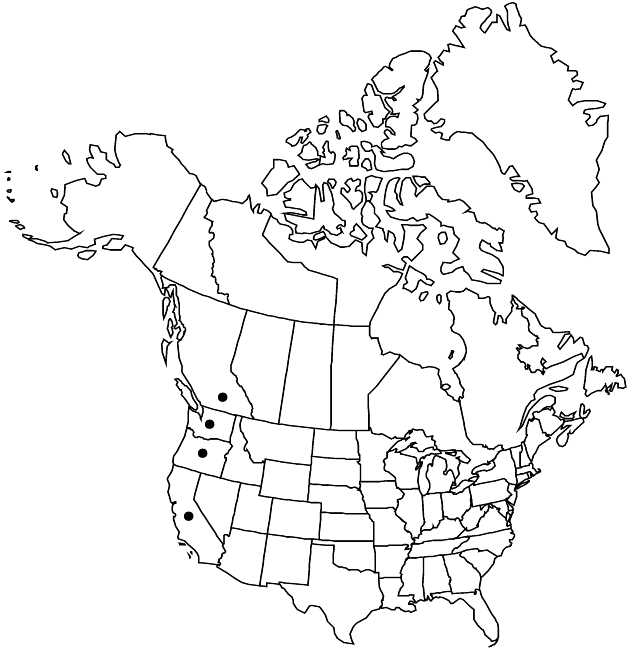Lasthenia maritima
Madroño 32: 139. 1985.
Annuals, to 25 cm (herbage not sweetly scented). Stems usually prostrate or decumbent, rarely erect, branched proximally, glabrous or hairy at nodes and distally. Leaves linear to oblanceolate, 10–90 × 2–12 mm, (fleshy) margins entire or lobed, faces glabrous. Involucres hemispheric, 4–7 mm. Phyllaries 6–14, lanceolate to ovate, hairy (especially at margins and midribs). Receptacles conic, muricate, glabrous. Ray florets 7–12; (corollas light to golden yellow) laminae oblong, 1–3 mm. Anther appendages ± oblong, obtuse (style apices ± deltate, glabrous or with apical tufts of hairs and subapical fringes of shorter hairs). Cypselae gray, linear to narrowly clavate, (2–)2.5–3 mm, ± hairy; pappi usually of 4–6(–12) brown, lanceolate or subulate, aristate scales plus 4–5+ shorter, laciniate scales, rarely 0. 2n = 8.
Phenology: Flowering May–Jul.
Habitat: Seabird roosting sites, coastal headlands, offshore rocks, islands
Elevation: 0–100 m
Distribution

B.C., Calif., Oreg., Wash.
Discussion
Lasthenia maritima is a self-pollinating, “guano endemic” of seabird nesting grounds. It is typically found on offshore islands and rocks from the Farallon Islands, California, to the northern tip of Vancouver Island, British Columbia and rarely occurs on the mainland.
Selected References
None.